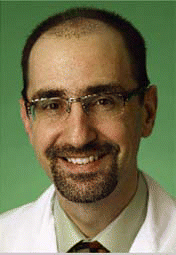SAN DIEGO-Perioperative steroids have a clinically significant impact on the technical aspects of surgery and improve objective surgical outcomes in the short and medium term, according to research and a new scoring system presented April 26 by Triological Society Mosher Award recipient Erin D. Wright, MD, FRCSC, at the Combined Otolaryngology Spring Meetings.
Explore This Issue
June 2007Dr. Wright, Director of the Alberta Sinus Centre and Associate Professor of Otolaryngology at the University of Alberta in Edmonton, Canada, told audience members that patients receiving systemic steroids preoperatively for five days and postoperatively for nine days had significantly healthier cavities in the short (two weeks) and medium (six months) terms. In addition, he said the novel Peri-Operative Sinus Endoscopy (POSE) scoring system he developed correlates strongly with the Lund-Kennedy Endoscopy Scale (LKES) but seems to have enhanced responsiveness to change, data richness, and face validity.
The POSE scoring system includes data collection on the middle turbinate and middle meatus, two areas always addressed in endoscopic sinus surgery (ESS) and of great importance in surgical outcomes. It also assesses in greater detail the endoscopic appearance of the ethmoid cavity by using a broader scoring scheme that assesses the progression from edema to polypoid change, and finally to frank polyps. It addition, POSE has the ability to include secondary sinuses such as the frontal and sphenoid sinus.
If necessary, a conversion equation has been developed to permit comparison between patients having a different extent of surgery, Dr. Wright said.
I found it quite simple to use and the data could be collected efficiently in the outpatient clinical setting, he said. The POSE scoring system shows promise as an objective outcome measure for future studies and merits further validation studies, such as tests with larger numbers in a multicenter assessment.
Evidence-Based Analysis
Dr. Wright said that the motivation for his study was to provide evidence-based practice and analysis in clinical rhinology. Much of current practice, he said, is based on expert opinion or anecdotal evidence. I was hoping to critically assess what was previously the practice of some and make it accessible to all so that each clinician could view the evidence and decide for his or herself what is the best practice for patients.
Once he started the study, he realized that we may be able to develop a better tool for assessing objective (i.e., endoscopic) outcomes in rhinosinusitis. This was the motivation for developing the POSE score.

Leave a Reply